New apartment prices across greater Tokyo hit highest price since 1990
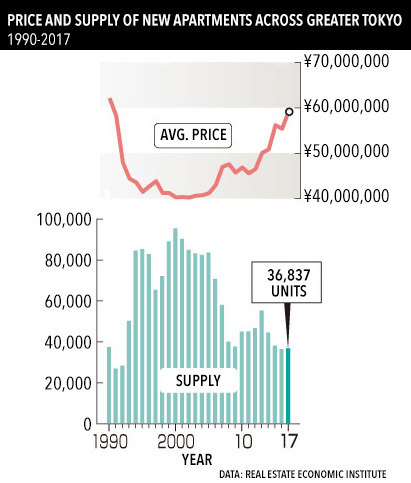
According to a report issued by the Real Estate Economic Institute on April 16, the average price of a brand new apartment across greater Tokyo was 59,210,000 Yen in fiscal 2017, an increase of 6.9% from 2016 and the highest level seen since 1990 when the average price peaked at 62,140,000 Yen. High labor and construction costs along with rising land prices have been a major contributor to the high sale prices of apartments in and around the capital.
A total of 36,837 brand new apartments were released for sale, a 1.1% increase from 2016 and the first increase seen in four years. This is still far short of the peak supply of 95,479 apartments seen in 2000. The average price per square meter was 864,000 Yen, up 7.9% from 2016.Read more
Share house investment scam sees bank share price dive 20% in one day
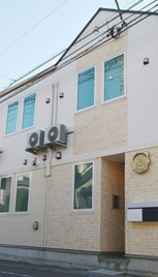 The scandal surrounding a failed share house developer continues to grow this month as more information about dodgy spruiking tactics and falsified documents comes to light. As many as 700 investors from a single share house developer are facing potential bankruptcy, but the number of victims could easily rise as other investment-spruiking companies are put under the spotlight.
The scandal surrounding a failed share house developer continues to grow this month as more information about dodgy spruiking tactics and falsified documents comes to light. As many as 700 investors from a single share house developer are facing potential bankruptcy, but the number of victims could easily rise as other investment-spruiking companies are put under the spotlight.
A lawyer representing a class action by investors against the Tokyo-based share house company alleges that the inflated price of the share houses sold to investors was determined by the maximum amount that the bank was willing to lend a buyer, rather than the true market price. A gross return was 8 ~ 9% was then applied to the sale price, even if it was higher than the market rent. The buyer would buy under the assumption that they could rely on stable, guaranteed rents that would provide them with a cash surplus each month. The high yield was only possible because the share house operator was providing a rental guarantee that far exceeded the rent they were receiving - causing the operator to lose money each month.Read more
Bidding restarted for Sengaku-ji Station high-rise apartment tower
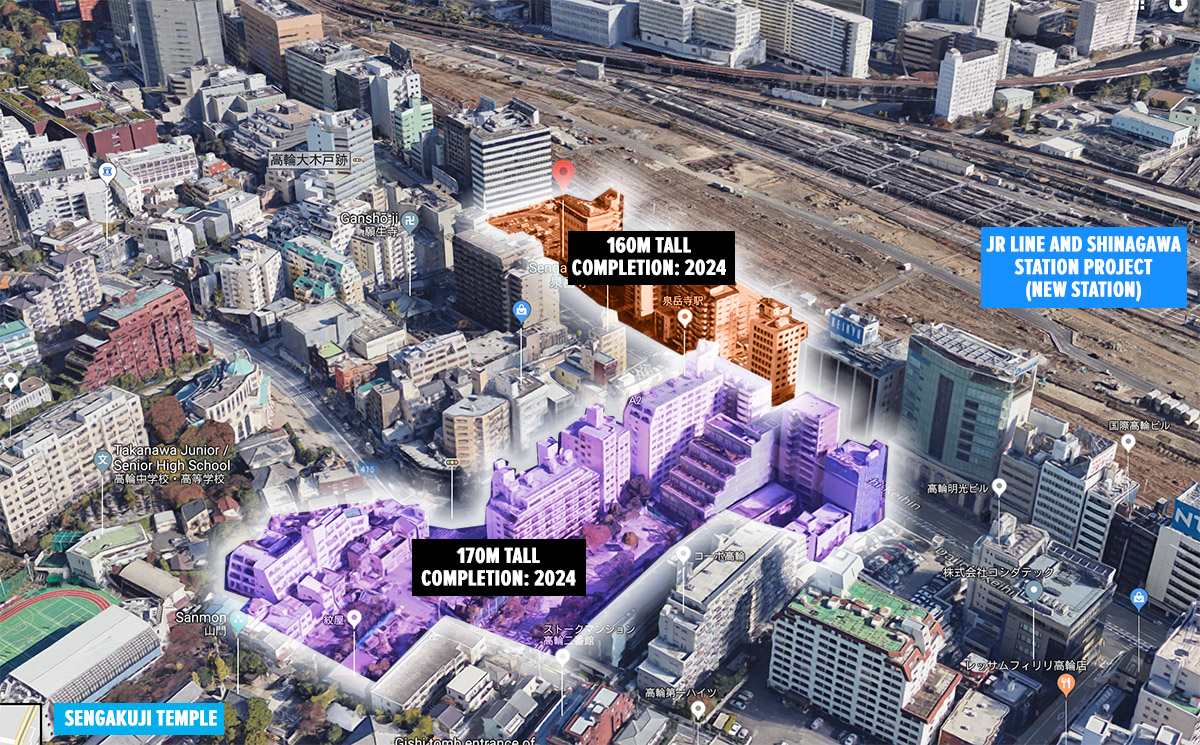
A 160m tall apartment tower is planned for a site located above Sengaku-ji Station in Minato-ku, Tokyo. The project covers a 13,000 sqm site located on the eastern side of the Daiichi-Keihin Road, with the Yamanote train tracks running along the western side. This is reclaimed land that was once part of Tokyo Bay.
In February it was announced that a joint venture between Kajima Corporation, Tokyu Land and Keikyu Corporation had successfully bid on the development. On April 4, the Tokyo Metropolitan Government announced that their bid was disqualified after charges were filed against an executive from Kajima Corporation for allegedly colluding on a bid for the new high-speed maglev train. Read more
Tokyo apartment sale prices increase for 66th month
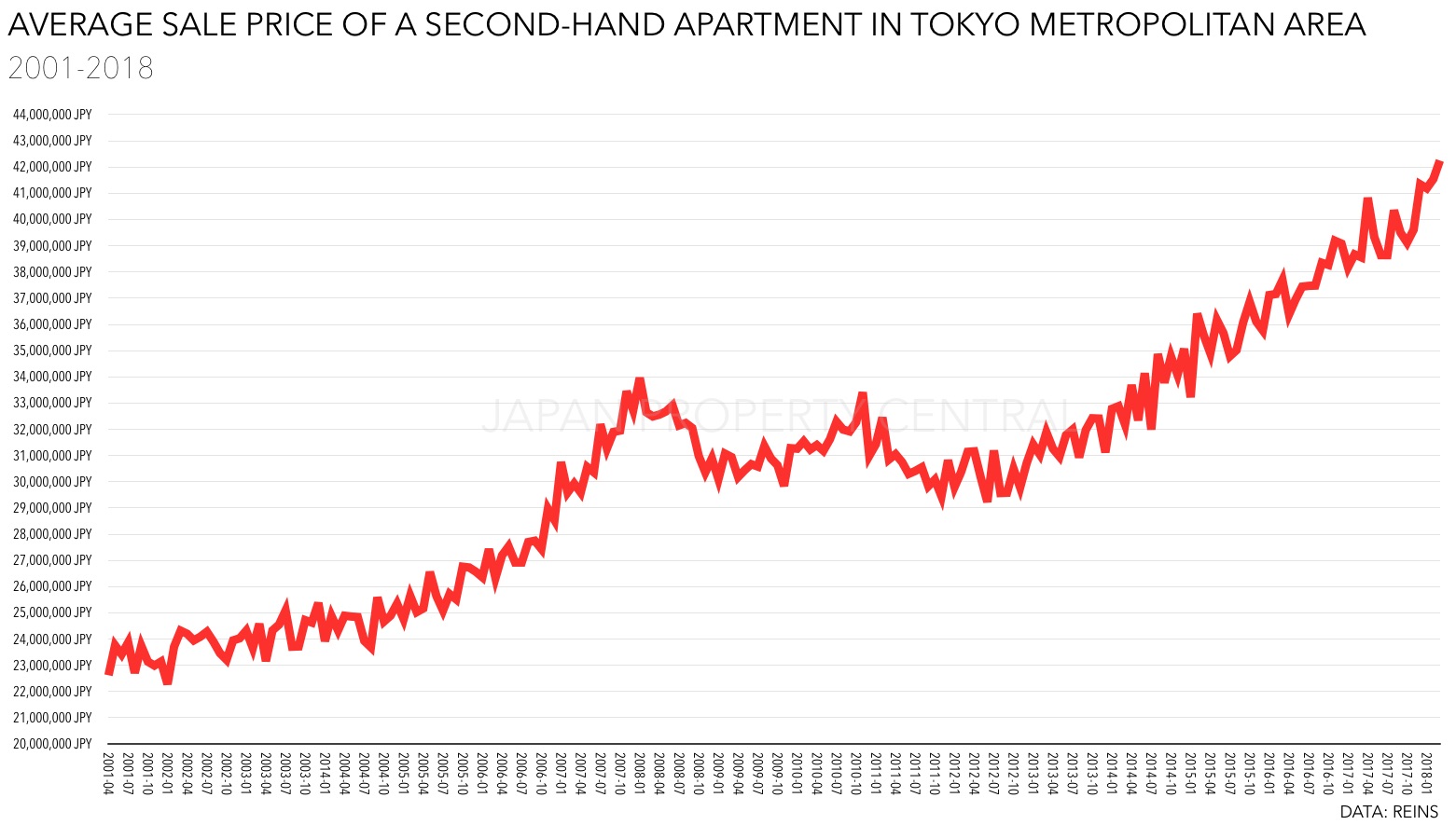
According to REINS, 3,819 second-hand apartments were reported to have sold across greater Tokyo in March, up 11.5% from the previous month and up 2.7% from last year. The average sale price was 33,690,000 Yen, up 0.5% from the previous month and up 7.1% from last year. The average price per square meter was 521,100 Yen, up 1.8% from the previous month and up 5.7% from last year. This is the 63rd month in a row to see a year-on-year increase in sale prices.Read more
Two floors in ARK Hills sell for 3 billion Yen
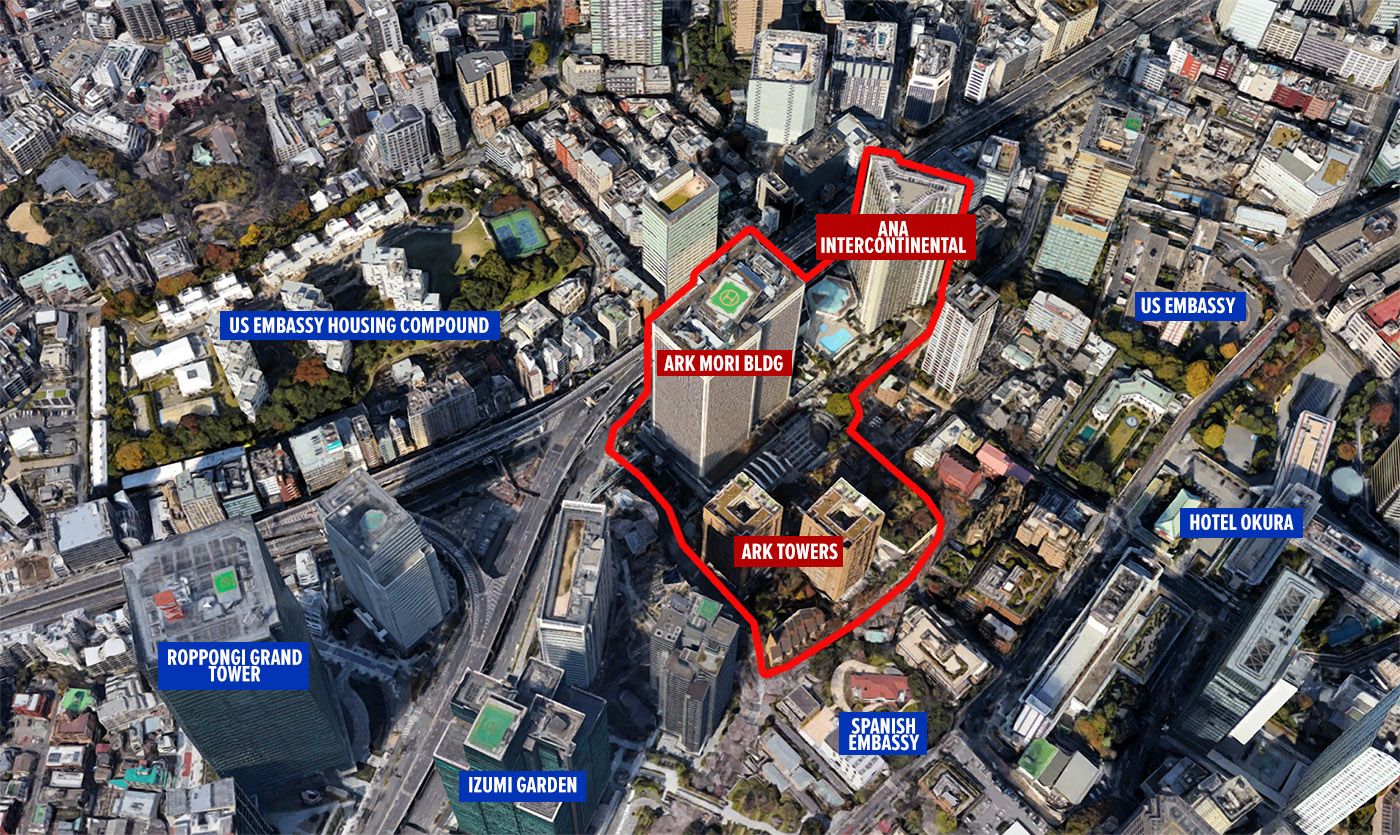
Two floors in ARK Mori Building - the office tower in the ARK Hills complex located in central Tokyo - have been acquired by Heiwa Real Estate REIT. Heiwa paid 3.085 billion Yen (approx. 29 million USD) for the trust beneficiary rights to the 30th and 31st floors from an unnamed seller.Read more
Renovation company Intellex joins Kyoto guesthouse market

Intellex, a property renovation giant, announced their entrance into Kyoto’s guesthouse market. The company will start buying traditional machiya townhouses, renovate them and operate them as licensed guesthouses for tourists who want to rent an entire house for the duration of their stay. The project cost is estimated at 480 million Yen (approx. 4.5 million USD) to be spread across five guesthouses.
Their first guesthouse is a 100-year old, 2-storey machiya house located alongside Chawan-zaka, the road that leads up to Kiyomizu Temple. It has a total building size of 111 sqm (1,194 sq.ft) and can host groups of up to 10 guests. Nightly rates range from 36,000 ~ 60,000 Yen and up, depending on the season and number of guests.Read more
Home buyers and sellers: Building inspection guidelines introduced this month

From April 1st, 2018, licensed real estate agencies must include a clause in agency agreements with buyers and sellers that make note of home inspections. The added clause will indicate (1) whether the real estate company has an affiliated home inspection agent that they have a referral program with, and (2) if a home inspection has been carried out within the past 12 months and the main details of those inspection results.
If an inspection has been carried out, the contract of sale will have a clause whereby the seller and buyer both confirm the results of the inspection. An outline of the results will also be included in the Explanation of Important Matters documentation which is read to the buyer before contract documents are signed.
It is important to note that there is no obligation or requirement for a seller to carry out a home inspection, although it is hoped that the revision will make more consumers aware of building inspections. A seller might choose to carry out an inspection when listing their home for sale to provide some comfort to potential buyers.Read more
